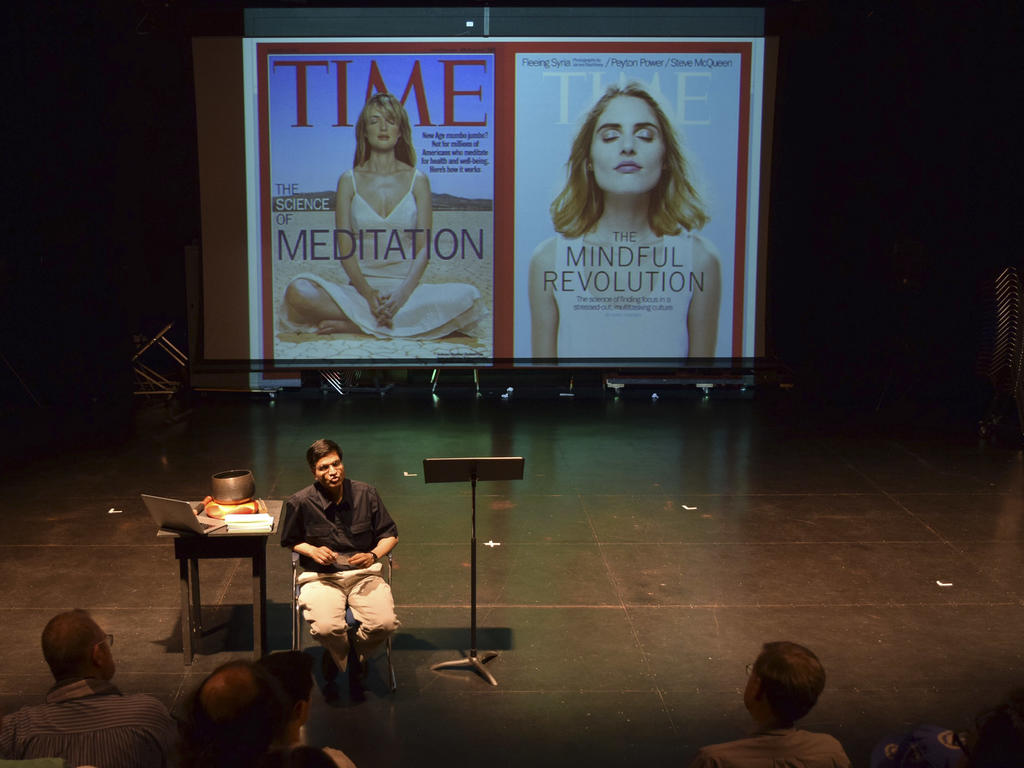On June 18, Rhodes held a day-long retreat on campus for students, faculty, staff, alumni, and community members. The event was sponsored by the Compassionate Campus Initiative (CCI), which is led by Prof. Mark Muesse of the Department of Religious Studies and composed of faculty, staff, and students who have been charged by President William E. Troutt to seek out and execute ways to make Rhodes a kinder and more mindful community.
After a welcome from President Troutt and members of CCI, retreat participants engaged in multiple workshops and break-out sessions that explored various topics related to compassion and practices that encourage contemplation, healing, or mindfulness. Students then led smaller discussion groups to brainstorm how to turn these ideas into actions.
Drew McCormick ’18 asked Muesse about the retreat and the mission of the Compassionate Campus Initiative:
Drew McCormick: How did all the workshops collectively serve as a means of finding ways to make Rhodes a more compassionate and hospitable place?
Prof. Muesse: Each of the workshops presented a particular aspect of the larger project of making Rhodes a more hospitable and compassionate campus. Such an ambitious goal, of course, has many, many facets, and we were not able to address every important dimension.
But we have made a start by inviting members of the Rhodes community to share their talents and skills in special areas. Prof. Kendra Hotz, for example, facilitated a workshop on cultivating the skill of empathy, an integral capacity for developing compassion. Alumna Rev. Dorothy Sanders Wells and Prof. Courtenay Harter focused on the role stereotypes play in our interactions with others. Local physician Manoj Jain talked about the neuroscience of compassion and meditation.
The student-led discussion sessions brought another dimension by concentrating attention on specific actions Rhodes can take to more fully embody the ideals of the compassionate campus.
Each of these workshops approached the topic of compassion from different points of view, but ultimately they are interrelated with one another, not unlike the way different aspects of the liberal arts curriculum shed light on other components of the curriculum.
DM: What did you think of the event? What made it special?
Prof. M: What pleased me the most about the event was the wide range of persons who participated.
There were current students representing all the different classes (even several incoming first years) and cultural backgrounds, many alumni and alumnae (some who came from as far away as Nashville), faculty, staff members, and even some members of the community who have no official affiliation with Rhodes but who are interested in the college’s well-being.
I’ve been here for almost three decades, and can’t recall a time when such a broad spectrum of the Rhodes community came together for such an important purpose.
The success of the retreat has convinced me that the college needs to create more occasions when we can all simply get together and become more acquainted. At the same time, the retreat helped me grasp more clearly the areas at the college that desperately need attention. There is a lot of hidden suffering on this campus, and we need to be made aware of it.
DM: What does the CCI have in store in the future?
Prof. M: We have several immediate goals. First, we are working with the First-Year Seminar program to incorporate an element of mindfulness and compassion (sometimes called “kindfulness”), as well as offering a course in the fall (for all students) on contemplative studies. We’re working to bring a speaker to campus in 2016-2017, as we did with Arun Gandhi last year. The student affiliates of the Compassionate Campus Initiative are planning another Random Acts of Kindness Week, mindfulness lunches in the Rat, and “Tea with Strangers."
Most of all, I am hoping that we can create more events that bring us all together and help break down the barriers that divide us.
All photos courtesy of Prof. David Mason, Associate Chair of Theatre, Director of Asian Studies
